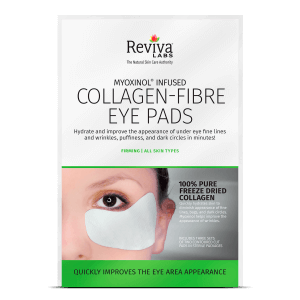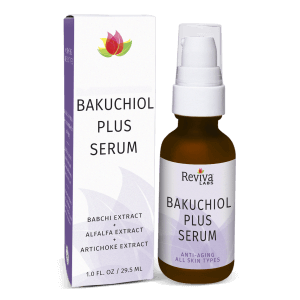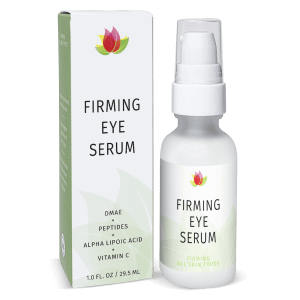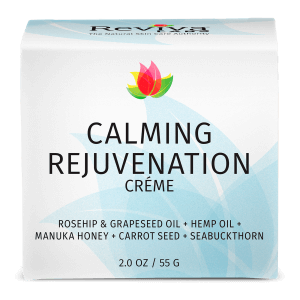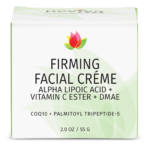Reviva Labs, Skin Care
The Biggest Skincare Mistakes You Might Be Making
The beauty of skincare is how hopeful it feels. A new cream, a different serum, or even just washing your face properly can feel like a tiny promise to yourself that better skin days are coming. But here’s the hard truth – many of the most common skincare habits people swear by are actually working against them. Even worse, some of those mistakes are so ingrained in everyday routines, they feel like gospel.
Here’s something that might surprise you: According to a 2023 survey by SkinStore, the average American spends about $322 on skincare products each year. That’s hundreds of dollars – sometimes much more – all riding on the hope that a product will perform miracles. But no serum or moisturizer can outshine poor habits. And the most expensive cream in the world can’t undo daily mistakes.
It’s not about perfection. It’s about awareness. And often, fixing small skincare errors can make a bigger difference than adding another pricey product to your shelf. Let’s talk about the habits that could be sabotaging your glow without you even realizing it.
Overcleansing Is Hurting More Than Helping
There’s something satisfying about that squeaky-clean feeling after washing your face. But if your skin feels tight or dry right after cleansing, that’s not a sign of being extra clean – it’s a red flag. Overcleansing strips away not just dirt and oil but also the skin’s protective barrier.
That barrier is what helps lock in moisture and keep irritants out. When it’s compromised, your skin might produce more oil to compensate, leading to a frustrating cycle of dryness and breakouts all at once.
Some people even double cleanse with harsh formulas morning and night without realizing they’re irritating their skin. Unless you’re wearing heavy makeup or sunscreen that requires removal, most people don’t need an aggressive cleanse twice daily. A gentle cleanser is more than enough for most skin types.
Skipping Moisturizer If You Have Oily Skin
Oily or acne-prone skin often tricks people into believing moisturizer should be avoided altogether. It feels logical – why add moisture to skin that already looks shiny? But this is one of the biggest myths out there.
When you skip moisturizer, your skin senses dryness and goes into oil production overdrive to compensate. Ironically, adding lightweight hydration can help balance oil levels over time. Look for moisturizers labeled as non-comedogenic or oil-free, but don’t skip this step. Hydration is essential for every skin type, not just dry or mature skin.
Using Too Much Product
If a little is good, more must be better, right? Not when it comes to skincare.
Overloading your skin with too many products – or too much of a single product – can lead to clogged pores, irritation, and waste. This mistake often shows up with serums and active ingredients like retinol or exfoliating acids. Using more than recommended can backfire quickly.
Many products are carefully formulated to deliver results at specific concentrations. Slathering on extra doesn’t speed things up. It can actually damage your skin barrier and slow your progress.
The Fix: Always follow product instructions. Start slowing with active ingredients and give your skin time to adjust before adding more.

Exfoliating Too Often (Or Not Enough)
Exfoliation has almost become a skincare buzzword. And for good reason – it removes dead skin cells, promotes cell turnover, and helps products absorb better. But there’s a sweet spot between neglect and obsession.
Some people exfoliate aggressively every single day, using scrubs or acids, thinking it will speed up their glow goals. Instead, they’re left with redness, sensitivity, and sometimes breakouts from a compromised skin barrier.
On the flip side, others avoid exfoliating altogether, leading to dullness, clogged pores, and rough texture.
The Fix: Pay attention to your skin’s needs. Gentle exfoliation one to three times a week is ideal for most people. Sensitive skin might need even less. And always follow with soothing hydration.
Ignoring Sunscreen Unless It’s Sunny
One of the most consistent skincare mistakes people make is treating sunscreen like a summer-only product. But UV damage happens year-round – even on cloudy days, through windows, and during short walks to the car.
In fact, up to 80% of the sun’s UV rays can pass through clouds. Daily SPF is non-negotiable if healthy skin is the goal.
Sunscreen isn’t just about preventing burns – it’s about protecting collagen, preventing hyperpigmentation, and reducing long-term damage like wrinkles or dark spots.
Sleeping in Makeup
It’s the oldest skincare sin in the book, yet people still do it. Whether it’s from exhaustion, laziness, or thinking one night won’t matter, sleeping in makeup is asking for trouble.
Makeup mixed with the day’s dirt, oil, and environmental pollutants creates the perfect storm for clogged pores, inflammation, and breakouts. It can also accelerate skin aging by disrupting the skin’s natural repair cycle overnight.
Even if you don’t wear a full face of makeup, skipping cleansing at night means leaving behind sunscreen, sweat, and pollution – all of which can take a toll over time.
Not Cleaning Makeup Brushes or Pillowcases
Think about this: You wouldn’t drink from the same unwashed cup for weeks, right? But dirty makeup brushes and pillowcases are in constant contact with your skin. Both collect oil, bacteria, dead skin, and product buildup.
Dirty brushes can lead to breakouts, irritation, and uneven makeup application. Pillowcases can do the same, especially if you have acne-prone or sensitive skin.
Experts recommend washing makeup brushes weekly and changing pillowcases every few days to avoid unnecessary exposure to bacteria and grime.
Layering Products Incorrectly
Skincare layering is both an art and a science. The wrong order can prevent products from absorbing properly or even cause them to cancel each other out.
For example, applying oil-based products before water-based serums blocks absorption. And mixing certain active ingredients – like vitamin C with niacinamide or retinol with exfoliating acids – can trigger irritation.
A good rule of thumb is to apply skincare from thinnest to thickest texture. Start with cleansing, then toners or essences, followed by serums, moisturizers, and oils last. Sunscreen should always be the final step in your morning routine.
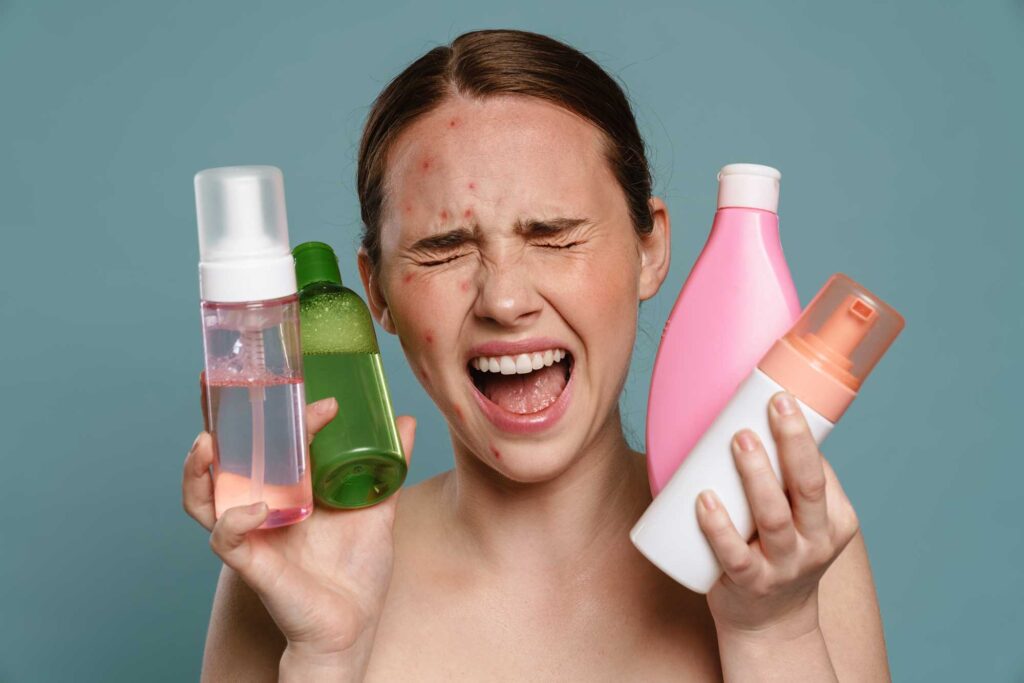
Treating All Skin the Same
Everyone’s skin is unique. What works beautifully for your best friend might wreak havoc on your face. This is why copying someone else’s skincare routine step for step often ends in disappointment.
Skin type, lifestyle, climate, and even stress levels all play a role in what your skin needs. Following trends without considering your personal skin concerns is one of the easiest ways to waste money – and irritate your skin.
Listen to your skin. If it feels tight, greasy, itchy, or inflamed, it’s giving you feedback in real time.
Skipping Neck and Chest Care
Your face doesn’t end at your jawline, but it’s amazing how often skincare stops there. The neck and chest (often called the décolleté) are exposed to the same environmental stressors as your face but are frequently neglected.
These areas are prone to dryness, sun damage, and wrinkles just like the face. And they often show signs of aging even faster because the skin is thinner.
Make it a habit to treat your neck and chest with the same care as your face – cleansing, moisturizing, and applying sunscreen daily.
Expecting Instant Results
We live in a world of overnight shipping and instant gratification. But skincare isn’t Amazon Prime. Real results take time.
Skin typically renews itself about every 28 to 40 days. That means visible improvement from new products can take at least a month – and often longer for things like dark spots or wrinkles.
Getting impatient and switching products too quickly can prevent you from ever seeing results. Worse, it can confuse and irritate your skin.
Consistency really is the secret weapon in skincare. Find a routine that works for your skin and stick with it long enough to let it work its magic.
Neglecting Lifestyle Factors
Skincare doesn’t stop at products. Stress, diet, hydration, sleep, and environment all impact your skin health dramatically.
Lack of sleep can lead to dullness and puffiness. High sugar intake can fuel breakouts and collagen breakdown. Stress increases cortisol levels, triggering oil production and inflammation. And dehydration leaves skin looking tired and dry.
Even the best skincare routine can only do so much if lifestyle factors are constantly working against you.
Simple daily habits like drinking water, eating antioxidant-rich foods, managing stress, and getting enough sleep can boost your skincare results exponentially.
Forgetting Regular Skin Checks
Finally, one mistake often overlooked is skipping professional skin checks. While skincare products are wonderful for daily care, they can’t replace professional evaluations.
Dermatologists recommend annual skin checks to monitor for suspicious moles, spots, or changes – especially for those with a history of sun exposure or skin cancer in the family.
Early detection is powerful. Skin cancer is highly treatable when caught early, but ignoring changes or waiting too long can have serious consequences.

Relying Too Heavily on Social Media Trends
Social media has completely transformed the skincare conversation. In many ways, that’s a good thing. There’s more access to product education, real-life reviews, and transparency than ever before. But there’s also a dark side: skincare advice on social media is often generic, sensationalized, or flat-out wrong.
Trends like slugging, skin cycling, or DIY masks go viral in a heartbeat. And while some are backed by science, many are taken out of context or applied without considering individual skin types.
Just because a trending skincare hack worked for someone on TikTok doesn’t mean it’s right for your skin. Homemade scrubs, lemon juice masks, or toothpaste spot treatments might look fun online, but they can trigger irritation, burns, or lasting damage.
Skincare isn’t one-size-fits-all. Social media should inspire curiosity, not dictate your entire routine.
Trust your skin’s signals over social hype. And when in doubt, stick to evidence-based ingredients that have stood the test of time.
Applying Products with Dirty Hands
It sounds obvious, right? But this mistake happens all the time, especially during rushed morning routines or sleepy nighttime rituals.
Touching your face with dirty hands transfers bacteria, oil, and environmental grime directly onto your skin. Over time, this can lead to breakouts, irritation, or even infections.
Make it a rule: Always wash your hands before starting your skincare routine. Treat your skincare time like a mini self-care ritual, not a chore to rush through.
Small habits like this set the foundation for healthier skin long-term.
Not Giving Products Enough Time to Absorb
Layering products is essential for building an effective routine. But slapping them on one after another without waiting can reduce their effectiveness.
When products don’t have time to absorb properly, they can pill, rub off, or just sit uselessly on the skin’s surface. This is especially true with serums or treatments designed to penetrate deeper layers.
After applying a product, give it at least 30 to 60 seconds to absorb before moving to the next step. It doesn’t have to be an exact science, but this small pause gives your skincare a chance to work properly.
Plus, it turns your routine into a more mindful moment rather than a frantic rush.
Using Harsh Physical Scrubs
Physical exfoliators – like scrubs with large particles or gritty textures – were once skincare staples. But today, we know they can do more harm than good, especially if they’re overly harsh.
Large scrub particles, like crushed shells or fruit pits, create micro-tears in the skin. These tiny injuries can lead to inflammation, sensitivity, and long-term damage.
Gentler options, like fine jojoba beads or rice powders, are far safer. But chemical exfoliants (like alpha hydroxy acids or beta hydroxy acids) have largely replaced rough scrubs because they exfoliate without causing physical trauma.
If you love the feeling of a scrub, choose wisely and use it gently. Your skin is not a kitchen floor – it doesn’t need to be scrubbed into submission.
Forgetting About Lip and Eye Care
Skincare often focuses heavily on the cheeks, forehead, and chin. But the delicate skin around your eyes and lips deserves just as much attention.
The eye area is thinner and more prone to fine lines, puffiness, and dark circles. The lips can become dry, cracked, and damaged without proper care.
Hydrating eye creams, gentle application techniques, and nourishing lip balms can make a big difference in these overlooked areas.
Bonus tip: Apply your regular skincare (like serums or moisturizers) right up to the orbital bone around your eyes, unless the product specifically warns against it.
Picking or Popping Pimples
Everyone knows they shouldn’t do it. Everyone does it anyway.
Pimple popping is tempting because it offers instant (if temporary) satisfaction. But the risks far outweigh the rewards. Squeezing blemishes can drive bacteria deeper, cause inflammation, and dramatically increase the risk of scarring.
If you absolutely can’t resist, it’s better to use a clean comedone extractor or see a skincare professional. But ideally, spot treatments with ingredients like salicylic acid or sulfur are a much safer approach.
Remember: Short-term satisfaction can lead to long-term regret when it comes to skin picking.
Ignoring Seasonal Skincare Needs
Skin doesn’t behave the same way year-round. Weather, humidity, temperature, and sun exposure all impact your skin’s behavior.
Winter often calls for richer moisturizers, hydrating serums, and gentler cleansing routines to combat dryness. Summer might require lighter formulas, oil control, and increased SPF attention.
Failing to adjust your skincare with the seasons is like wearing the same outfit every day, regardless of the weather. Your skin deserves a wardrobe that fits the environment.
Be flexible. Check in with your skin regularly and tweak your routine as needed.
Assuming Natural Means Better (Or Safer)
The rise of “clean beauty” has created a massive assumption that natural ingredients are automatically safer or more effective. That’s not always the case.
Plenty of natural ingredients can irritate skin – especially essential oils, citrus extracts, or botanicals that are improperly formulated. Conversely, many lab-created ingredients are designed specifically to be gentle, stable, and effective.
Natural doesn’t automatically equal gentle. Synthetic doesn’t automatically equal harsh.
What matters most is formulation. Look for products – natural or synthetic – that suit your skin’s needs, not marketing buzzwords.
Not Being Gentle Enough with Your Skin
Skin isn’t built for rough handling. Tugging, scrubbing, rubbing, or harsh towel drying can lead to irritation and sagging over time.
Be mindful when cleansing, applying products, or drying your face. Patting motions are almost always better than rubbing.
Gentle habits add up. Over the years, treating your skin with kindness shows in its resilience and appearance.
Giving Your Skin Its Best Chance
Skincare mistakes don’t happen because people don’t care. They happen because there’s so much information out there – much of it conflicting – that it’s easy to get lost.
But here’s the good news: most mistakes are fixable. They’re not permanent failures. They’re learning opportunities.
Sometimes, the best thing you can do for your skin isn’t adding something new. It’s subtracting what’s hurting it.
Less irritation. More patience. Simpler routines. Smarter habits.
That’s how skin thrives.
And when you build routines rooted in respect for your skin’s natural rhythms, you don’t just see results – you feel them.
Frequently Asked Questions
Why is overcleansing bad for your skin?
Overcleansing can strip away the skin’s natural oils and damage its protective barrier. This often leads to dryness, irritation, or increased oil production as your skin tries to compensate. Gentle cleansing twice a day is usually enough for most skin types.
Should people with oily skin still use moisturizer?
Yes, absolutely. Skipping moisturizer can actually make oily skin worse. When skin is dehydrated, it often produces even more oil. The key is using a lightweight, non-comedogenic moisturizer that hydrates without clogging pores.
How often should you exfoliate your skin?
Most skin types benefit from exfoliating one to three times per week. Over-exfoliating can damage the skin barrier, while not exfoliating at all can lead to dullness and clogged pores. Pay attention to how your skin responds and adjust accordingly.
Is sunscreen really necessary every day?
Yes, daily sunscreen use is essential. UV rays penetrate clouds, windows, and even short bursts of outdoor exposure. Regular sunscreen use helps prevent premature aging, dark spots, and reduces the risk of skin cancer.
How long should you wait between applying skincare products?
Waiting 30 to 60 seconds between layers allows products to absorb better and reduces the chance of pilling or poor performance. Letting each product settle slightly can make your entire routine more effective.







